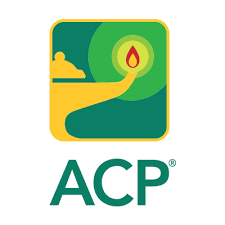ACP Releases Policy Statement on COVID-19 Distribution and Administration
The recommendations address issues related to vaccinator and patient education, counseling, billing, and reimbursement.

This week, the American College of Physicians (ACP) released 5 major policy recommendations regarding the provision, distribution, and payment of coronavirus disease (COVID-19) vaccines.
These recommendations aim to address the role of physicians as vaccinators. Additionally, they emphasize the importance of communication and collaboration among physicians and other vaccinators so as to ensure patient safety and continuity of care.
Recommendation 1
ACP recommended the use of all appropriately trained, state-licensed clinicians to administer the COVID-19 vaccine.
These same physicians may also advise and counsel patients and thus address concerns that may lead to vaccines hesitancy. Post-vaccine counseling as needed was also recommended
Furthermore, vaccines should be used in accordance with the scientific recommendations of the Advisory Committee on Immunization Practices (ACIP).
Recommendation 2
ACP recommended policy that ensures all vaccinators are educated about vaccine use, storage, handling, and distribution.
They encouraged that the US Centers for Disease Control and Prevention (CDC), US Food and Drug Administration (FDA), vaccine manufacturers, state and local health departments, and other stakeholders work together to distribute to vaccinators all vaccine-related educational and outreach materials.
Vaccinators should also be informed of potential adverse events or contraindications. Government agencies and stakeholders should support clinicians in appropriately and effectively communicating information to their patients.
“ACP supports a national campaign to communicate to the public why it is necessary to get vaccinated, where the vaccine can be obtained, and other information,” the recommendation states.
Recommendation 3
ACP recommended that all vaccinators—which include pharmacists, nurses, and health care profession working in retail—coordinate and collaborate with the patient’s primary care team to ensure patient safety and continuity of care.
Specific actions vaccinators can take include providing appropriate immunization paperwork or documentation to the patient, referring the patient to their primary care team for counseling and follow-up (if necessary), and implementing a structured referral system to primary care settings.
Vaccinators should also encourage patients to establish a longitudinal relationship with a primary care team if one is not already existing.
Recommendation 4
ACP recommended that vaccinators promptly record the vaccine administration data within the patient’s medical record. Even more, it is essential that they report this data to the state’s immunization information system (ISS) or other designated CDC system.
Vaccinators should also report adverse events to the Vaccine Adverse Event Reporting system.
The recommendation explicitly acknowledges support for funding towards “a coordinated effort to improve electronic exchange of public health data focused on agreed upon standards that are implemented consistently across vendors and states as well as technical assistance and other resources to states to support IISs and other public health registries.”
Recommendation 5
Finally, ACP recommended that insurers be required to provide reimbursements for all vaccines, which includes the COVID-19 vaccines, administered according to ACIP scientific guidelines.
They indicated that private and public payers should inform care teams of billing, coding, and other information so that proper reimbursement (including for counseling and follow-up) can be prompt and expedited.
In strong terms, ACP expressed support that the COVID-19 vaccine should be free of charge, regardless of coverage status.